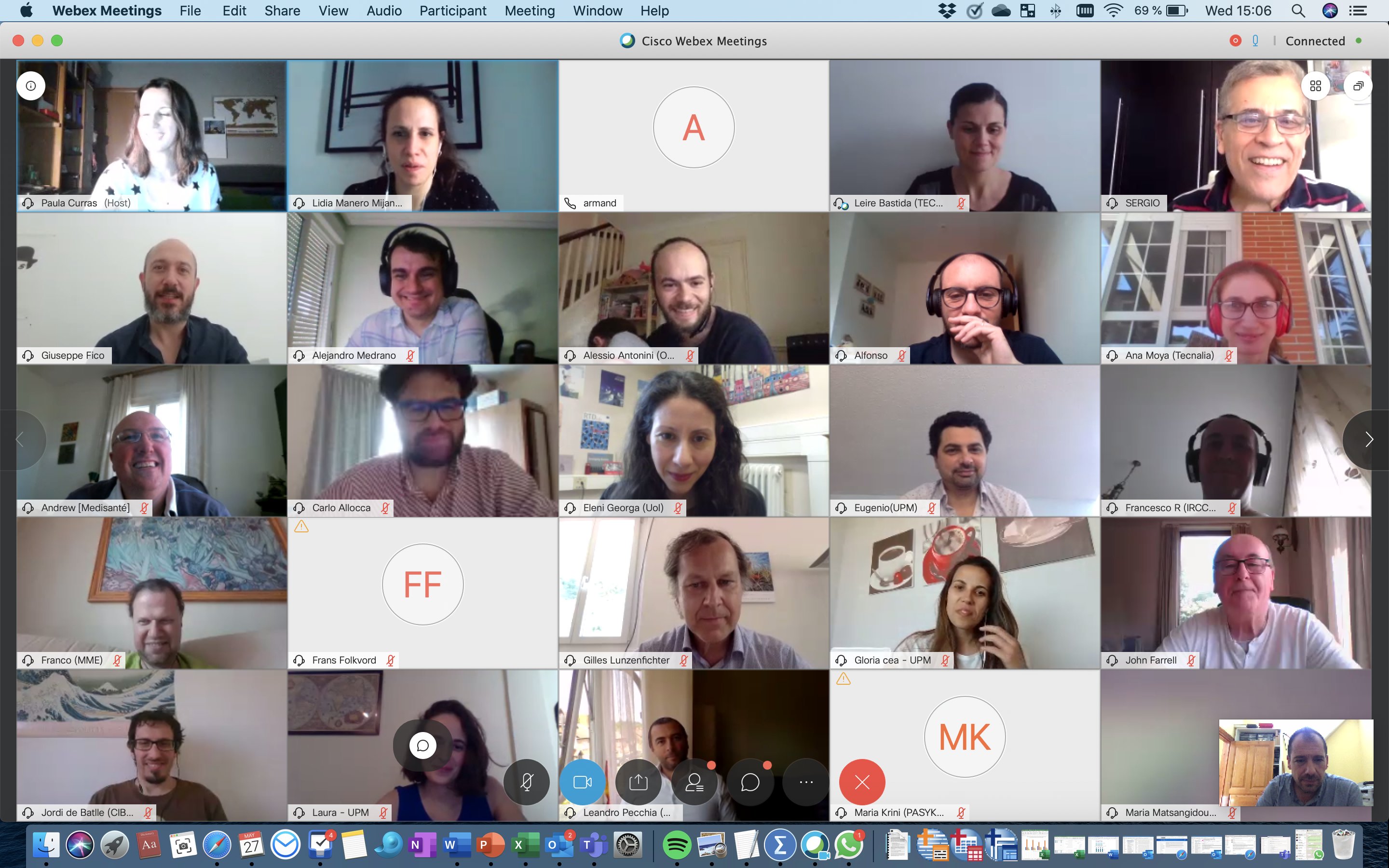The meeting was held online on 26 and 27 May 2020 due to the travel restrictions established in European countries because of the COVID-19 global pandemic.
Gatekeeper seeks to create an open, standard-based, interoperable, and safe platform offering innovative solutions and a broad selection of digital health services that allow for the improvement of early detection and to better address the treatment of diseases. The goal is to guarantee a more independent and healthier life for the elderly population. Harnessing the full potential of new technologies, especially the Internet of Things – IoT, Artificial Intelligence and Big Data, seeking early detection of diseases and disabilities to improve the understanding of symptoms, early diagnosis, and enabling personalised and continuous monitoring.
This second meeting has gathered participants from the 13 Member States of the Gatekeeper consortium. In addition to presenting the advances in the development of the platform, a revision of the tasks and milestones has been performed, sharing the progress of the pilot programmes in terms of intervention design.
Over the project’s first nine months, one of the main activities has involved the definition of the architecture, components and services needed for the development of the Gatekeeper platform. The team responsible for this task has presented the platform architecture based on the W3C Web of Things, that seeks to give due response to the challenges of the orchestration and integration of IoT technologies in Web applications. The way in which the storage and exchange of data from the pilots will be accomplished with the platform is an issue that is being explored. Currently, the innovative technologies and solutions portfolio is being defined, which will be used in the future by the pilots to undertake their interventions. These shall be available on the platform for healthcare professionals, users and healthcare providers.
The pilots have shown their progress in the design of their use cases in terms of the goals, expected results, identification of the technologies to be implemented, the user-recruitment process, or the approval process by local ethics committees. The Basque Country, represented in the project by Kronikgune, Osakidetza, and Biocruces Bizkaia, is one of the pilot regions, developing 5 cases. Kronikgune, together with Osakidetza, is responsible for two cases, the first is focused on healthy lifestyles for the elderly and early detection of decompensations; while the second targets the treatment of multimorbid, polymedicated patients, to increase their treatment adherence and to prevent adverse effects of medication. Both cases are focused within the “Elderly Care Plan” (Plan de Atención al Mayor – PAM) corporate programme by Osakidetza. The main goal of the programme is to identify the health needs of people over 70, through a comprehensive approach based on the identification of the functional level, the categorisation of different typologies, and their multi-dimensional assessment. This enables the establishment of therapeutic goals and individualised care plans.
The analysis of the social-economic impact of the different cases are supported on the different technological solutions, which will be developed using the MAFEIP tool, developed by Open Evidence, a partner in the project.
Lastly, the procedure for the Open Calls was presented, which will be undertaken by the project to incorporate solutions, technologies, and services to complement the Gatekeeper portfolio and, secondly, to create new pilot regions. The initial budget for these calls will amount to €1,500,000, and the first call is set to open in September 2020.
If you want to learn more about the project and keep up to date with its progress, please visit the official website: https://www.gatekeeper-project.eu/






